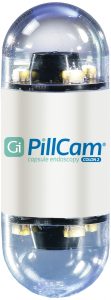Gastric cancer Screening Upper Endoscopy
It’s incredible how life reminded me that I should have a preventive endoscopy. I’m going to tell you this story:
I always take my car for preventive maintenance because I have no idea about mechanics and I want to avoid damage or an accident.
So there I was in the workshop waiting to be attended to when a classic truck from the 60’s parked behind me. It looked like it had just left the factory. It looked very beautiful
The owner got out and greeted those of us who were there, aware that we were all open-mouthed when we saw his car.
–Hello, how are you?
I’m fine thanks, and you?
–Excellent, here bringing my baby
I congratulate you, it is very well done. It’s like the years don’t pass by
– The truck belonged to my dad…. I think he loved her more than my mother. I’ve had it since he died of stomach cancer. Driving it reminds me of the old man and what he sacrificed for us… I am 40 and I hope to continue taking care of it to leave it to my children. That’s why every 5,000 kilometers I bring it here so they can do maintenance and make it look beautiful.
– I think that at this rate SUSI –that’s the name of the truck– will last longer than me
Why’s that?
– Because lately I’ve been feeling bad, my stomach is burning and I feel full all the time.
How curious because I am a Gastroenterologist. If I were you, I would have an endoscopy so that you know what you have or at least for prevention
– That bad habit of doctors, they always want you to do tests. What do you want me to prevent? Do you need money for the farm? …. No brother, I don’t have time for that… They also tell me that this is dangerous.
It is more dangerous if your body fails you because time can go
I wanted to explain to him that prevention is like bringing the car to the mechanic before something breaks, that in Upper Endoscopy you will not feel pain because they are done with sedation and that there are things in life that are riskier than an endoscopy. But just at that moment they called me to meet me at the car so I said goodbye wishing the man good luck.
When I finished the procedure he was no longer anywhere and I left with a certain feeling of sadness at seeing that one is capable of taking more care of something material than the only thing that will always be with you: your body. I was so moved that I wrote in my diary that I should schedule my endoscopy

Message 👉 Don´t wait until you have symptoms to schedule your Gastric cancer Screening Upper Endoscopy. I’ll wait for you when you turn 40 or sooner if you have had family members with some type of cancer or premalignant lesions in the stomach (Like atrophy or intestinal metaplasia)
Write to us on WhatsApp or call us at 📲 3207571313
Preparation for Upper Digestive Endoscopy
Greetings,

Mauricio González
Gastroenterologist. Endoscopy center in Medellín






















